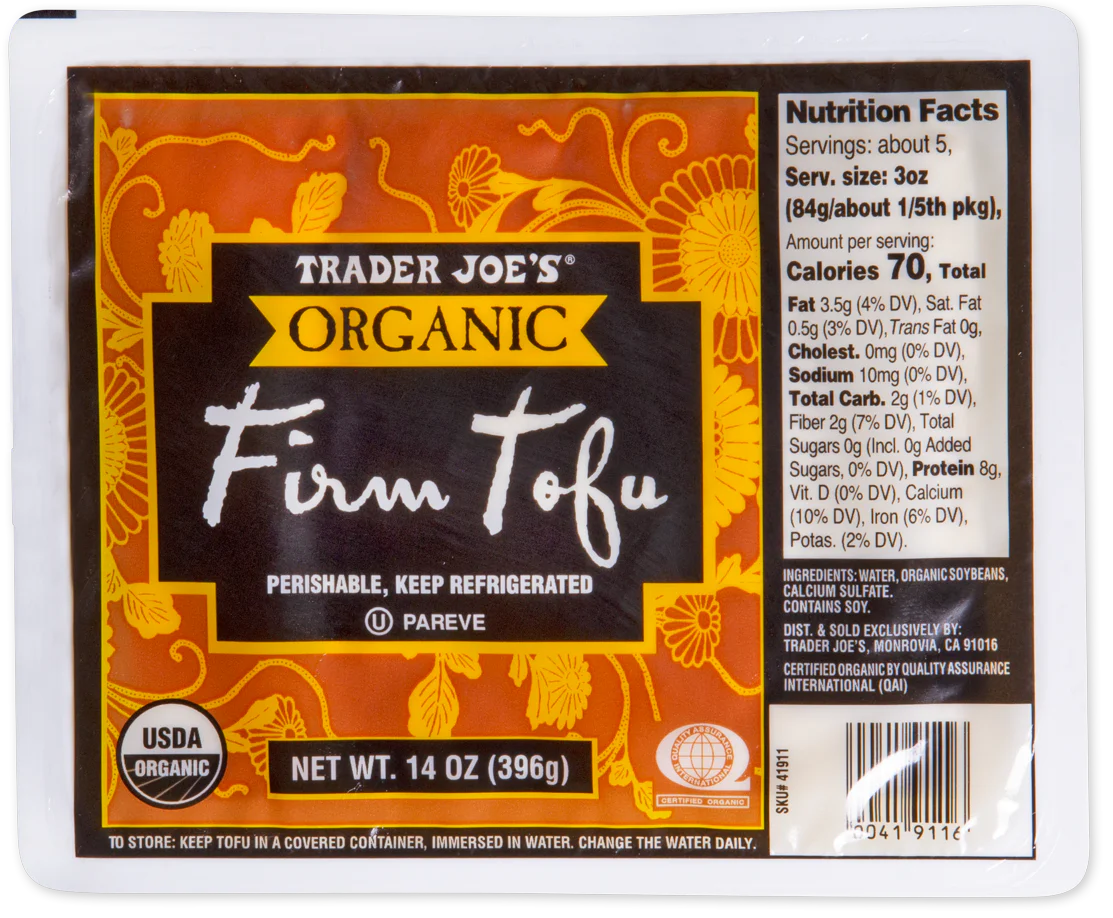We can't find the internet
Attempting to reconnect
Something went wrong!
Hang in there while we get back on track
When you buy through links on our site, we may earn an affiliate commission. Learn more
tofu
By Rachel Geyer
Tofu is a staple of any vegetarian kitchen, but this protein-packed block of soy is a delicious addition to any kitchen.
What is Tofu?
It may look a bit strange and artificial to some, but tofu has a rich history. Tofu originated in China around 200 BC and has been made the same way for 1,000 years. Soybeans are soaked to make soya milk. A curdling agent, anything from salt to lemon juice, is added to separate the milk into curds and whey. This concoction is strained and pressed, and just like that, you have a block of tofu!
Tofu is an incredibly versatile addition to any meal. You can buy it sprouted, baked, pressed, and marinated, but the possibilities don’t end there. Tofu is a great meat alternative and can be cooked in any manner of ways (you can even freeze it to give it a more meaty texture!) A personal favorite of mine is panko fried tofu bites — add these to stir-fries, curries, pasta, and tacos, or enjoy them on their own!
Environment and Health Benefits
Incorporating meat alternatives like tofu into your diet benefits the environment and your body. Meat can be beneficial to your health when consumed in moderation, but the way it is typically consumed today has been linked to cardiovascular disease, cancer and dementia.
When the Green Revolution began in the 1940s, crop yields skyrocketed and began to support the meat industry we see today. Factory farming, also known as concentrated animal feeding operations (CAFOs),…
- Puts domesticated animals in viciously inhumane conditions
- Releases harmful contaminants in nearby communities (usually low-income, POC communities due to environmental injustices)
- Creates an unsustainable demand for feed crops resulting in mass deforestation
- Releases greenhouse gas (GHG) emissions and makes up a large portion of U.S. GHG emissions.
Tofu provides many health benefits such as strengthening muscle and bone health, reducing bad cholesterol and preventing heart problems, helping regulate blood sugar and reducing the risk of lung cancer, to name a few. Tofu is packed with vitamins and minerals, and a single serving of tofu can make up over 18% of your recommended daily protein intake.
What to Look For
Tofu is derived from soybeans, which have their own host of environmental issues. Soybeans are a common animal feed crop, so their production can be linked to the damage caused by the factory farming industry. However, that doesn’t mean all soybeans are bad. When possible, look for tofu made with locally sourced, organic soybeans.
One of our choice tofu brands, Phoenix Bean, offers tofu sourced and produced all within the state of Illinois. This Chicago company distributes its locally sourced tofu across the Midwest. The only downside — or upside if you look at it from an environmental perspective — is you can only buy their tofu in stores. Check out their website to see if Phoenix Bean tofu is sold near you.
Unfortunately, tofu is typically packaged in plastic. An exception is aseptic packaging. Aseptic packaging is made of cardboard, aluminum and polyethylene. Polyethylene may be a plastic, but a pioneer of the packaging, Tetra Pak, has developed an effective recycling chain for aseptic packaging. Another of our choice tofu brands, Mori-Nu, uses aseptic packaging.
If you haven’t tried tofu before, give it a chance! When cooked right, it’s just as tasty (or more) than animal-sourced protein.
Sources
- https://www.tofuture.com/about-tofu/what-is-tofu/
- https://www.nytimes.com/2024/03/14/dining/freeze-your-tofu.html
- https://karylskulinarykrusade.com/recipe-crispy-pan-fried-tofu/
- https://www.ncbi.nlm.nih.gov/pmc/articles/PMC9318327/
- https://www.britannica.com/event/green-revolution
- https://thehumaneleague.org/article/what-is-factory-farming
- https://www.ncbi.nlm.nih.gov/pmc/articles/PMC7987827/
- https://acp.copernicus.org/articles/23/7479/2023/
- https://www.researchgate.net/profile/Mahendra-Pal-9/publication/332343856_Tofu_A_Popular_Food_with_High_Nutritional_and_Health_Benefits/links/5caef2caa6fdcc1d498c22dc/Tofu-A-Popular-Food-with-High-Nutritional-and-Health-Benefits.pdf
- https://www.sciencedirect.com/science/article/pii/S0264837721004877
- https://www.phoenixbean.com/aboutus.html
- https://www.phoenixbean.com/wheretofind.html
- https://www.cabidigitallibrary.org/doi/pdf/10.5555/20153221409
- https://morinaganutrition.com/pages/morinu-tofu-aseptic-packaging
Want more? Become an Intentful Consumer!
Get updates on new research and products. Upvote, comment, and add suggestions to help others.




